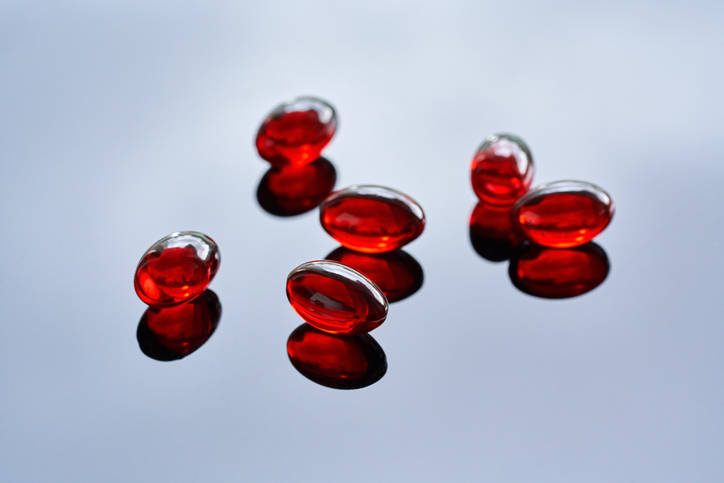
Researchers from Norway reported that Krill oil supplementation in vivo increases oleic acid (OA) oxidation and leucine accumulation in muscle cells and may reduce low-density lipoprotein (LDL). Further in vitro experiments showed increased gene expression associated with energy metabolism.
The study, published in Frontiers in Nutrition, adds evidence to existing research suggesting krill oil’s ability to enhance energy utilization and metabolic health.
“These and other findings highlight the potential treatment of metabolic disorders and enhancement of skeletal muscle performance by krill oil supplementation,” the researchers wrote.
They suggested that omega-3 fatty acids, palmitoleic acid and astaxanthin in krill oil may be responsible for the metabolic effects in skeletal muscle. The current results back up previous findings involving these components.
Despite the in vivo experiment showing no effect on glucose metabolism, transcriptomic analysis revealed increased gene expression of glucose transporters and upregulation of energy pathways after krill oil.
“This may indicate a potential role of krill oil in regulation of carbohydrate utilization in skeletal muscle,” the researchers wrote.
Krill oil health benefits
Krill oil is obtained from Antarctic krill, a small ocean crustacean. The supplement is rich in the omega-3 fatty acids eicosapentaenoic acid (EPA) and docosahexaenoic acid (DHA), palmitoleic acid and the antioxidant astaxanthin.
Previous studies have revealed multiple health benefits of krill oil, including the prevention of inflammation, support of the gut microbiota and enhancement of cardiovascular, brain and skin health.
The authors on the current study noted that krill oil has also been described as beneficial for muscle strength and function, recovery from injury and lipid and glucose metabolism.
However, more research is needed to understand the mechanisms of action in skeletal muscle and energy metabolism.
Study details
Study participants received a daily supplement of one gram of krill oil or placebo for seven weeks. The daily krill oil supplement was the equivalent of four servings of fatty fish per week.
The researchers obtained myotubes from thigh muscle biopsies in 20 adult donors before and after the intervention. They evaluated glucose and OA metabolism, leucine accumulation and the effects of different stimuli on the myotubes in vitro.
They then combined the data with proteomic and transcriptomic analyses.
The in vivo experiment found that krill oil increased OA oxidation and leucine accumulation in skeletal muscle cells but did not affect glucose metabolism.
They also observed a negative correlation between OA oxidation and the donors’ low-density lipoprotein (LDL) cholesterol levels and increased leucine accumulation, indicating increased protein synthesis.
Myotubes treated with krill oil for 24 hours in vitro showed an increase in both glucose and OA oxidation compared to control cells.
Transcriptomic and proteomic analysis identified differentially expressed genes associated with energy metabolism after krill oil supplementation and upregulation of LDL receptors.
The researchers suggested that future studies with more extensive and diverse samples should fully replicate the complexity of physiological conditions to provide a more comprehensive understanding of krill oil’s effects on energy metabolism and muscle cells.
Source: Nutrition and Metabolism Volume 11 – 2024
doi: 10.3389/fnut.2024.1452768
“Krill oil supplementation in vivo promotes increased fuel metabolism and protein synthesis in cultured human skeletal muscle cells.”
Authors: P.B. Katare et al.
